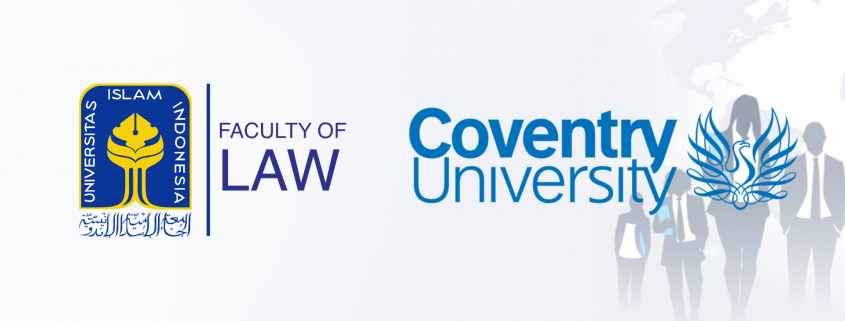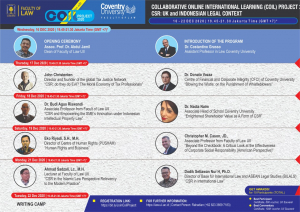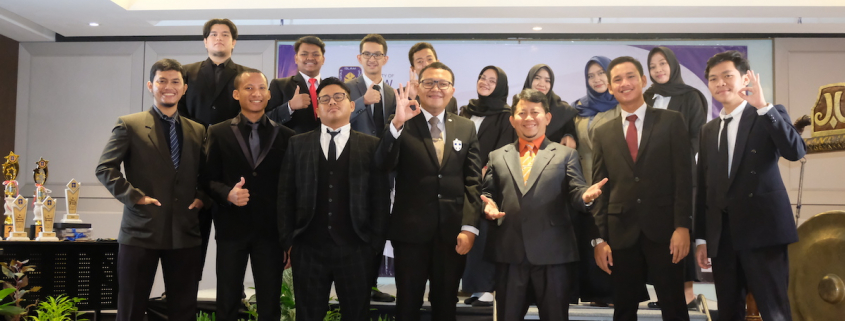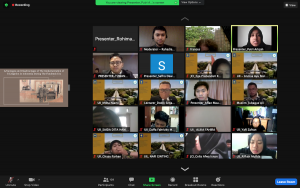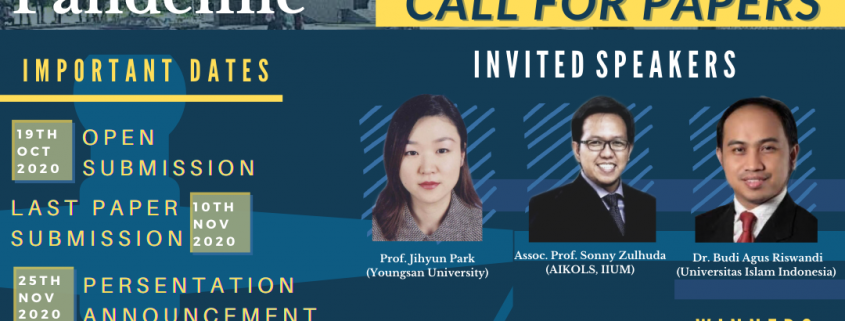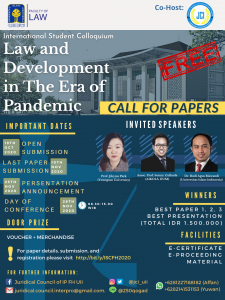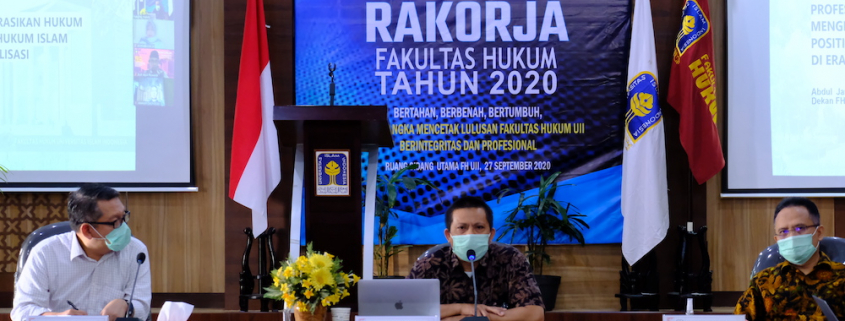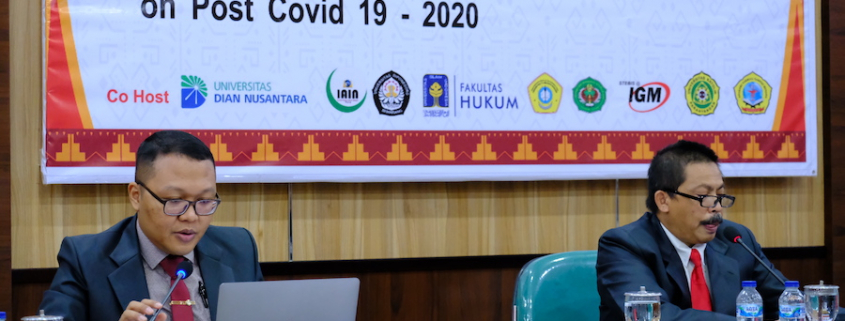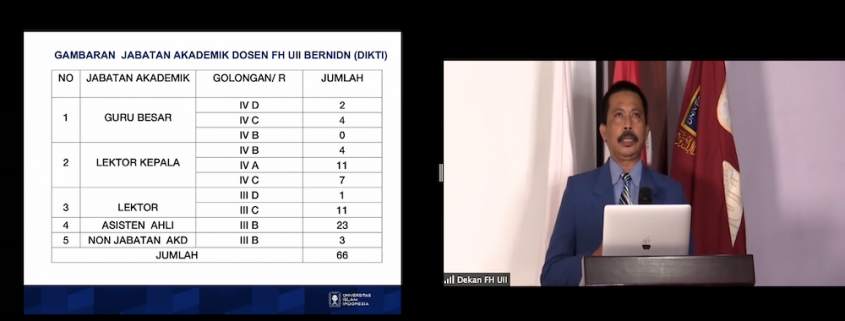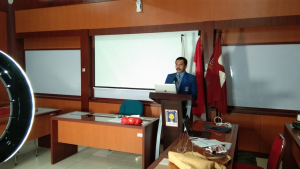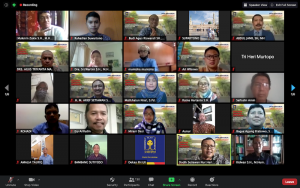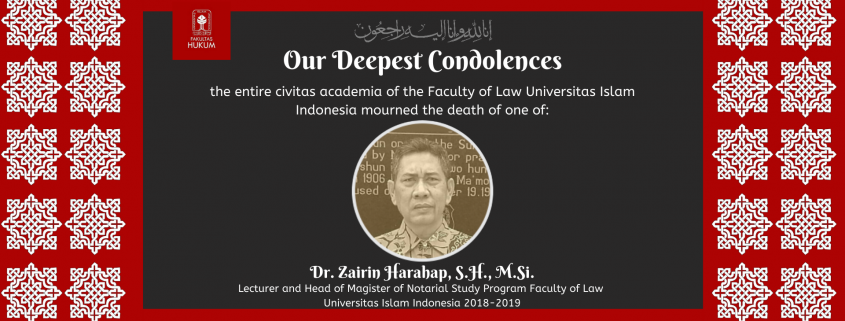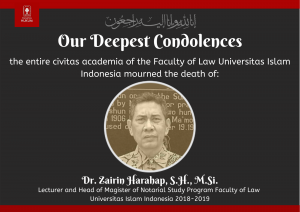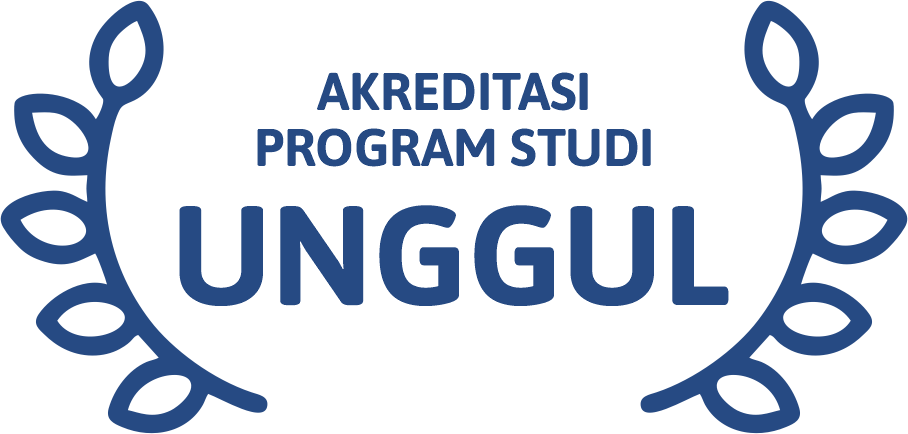As part of the commitment to its internationalization programs, the Faculty of Law of the Universitas Islam Indonesia departed two students to undertake a double degree program at the Department of Law, College of Creative Human Resources, Youngsan University, South Korea, on Tuesday (23 February 2021). The two students namely: Yuwan Zaghlul Ismail and Kurniawan Sutrisno Hadi. Both of them are students of the 2018 FH UII International Program. This discharge event was carried out in a blended manner, attended by leaders at the university and the Faculty of Law both offline and online.
According to Dodik Setiawan Nur Heriyanto, SH, MH, LLM., Ph.D., Secretary of the International Undergraduate Study Program in Law, Faculty of Law, Universitas Islam Indonesia, in his report, the two students who participated in the double degree program in South Korea are distinguished students. Both are students of the 2018 FH UII International Program. Yuwan Zaghlul Ismail is a Mawapres finalist at the Special Region of Yogyakarta level (Provincial Level). He has been a speaker at a conference at the International Islamic University Malaysia (IIUM). In addition, Yuwan is one of the students who took part in the transfer credit program at IIUM in 2019. Meanwhile, Kurniawan Sutrisno Hadi, is the student with the highest GPA in 2019, with GPA of 3.99. He won awards in various moot court competitions on the national and international levels.
The two students will go to South Korea on February 25, 2021. They will study for two years at Youngsan University, South Korea, and will get dual degrees, namely a Sarjana Hukum (S.H.) from the Faculty of Law Universitas Islam Indonesia and a Bachelor of Law from Youngsan University, South Korea.
Considering Dodik Setiawan statement, during the Covid-19 pandemic situation, the Faculty of Law Universitas Islam Indonesia has been coordinated with Youngsan University. The two students have taken medical procedures for international flights, starting from taking the PCR test before departure, taking a series of medical tests carried out by hospitals recommended by the South Korean government to taking quarantine when they arrived in South Korea. In addition, the two students will also get the opportunity to vaccinate Covid-19 according to the schedule and provisions of the South Korean Government.
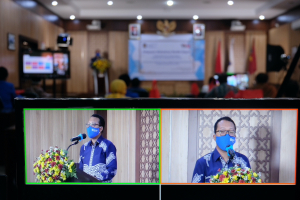
According to Dodik Setiawan, so far the Faculty of Law Universitas Islam Indonesia has also been very active in sending students to participate in credit transfer programs to several universities in the world, namely to IIUM, for six months (one semester) in 2019 and to Youngsan University, South Korea, during six months (one semester) in 2019.
Currently, the Faculty of Law Universitas Islam Indonesia has received a lot of international recognition. “Faculty of Law Universitas Islam Indonesia has also received certification from the ASEAN University Network-Quality Assurance (AUN-QA) institution at the ASEAN level through certification number AP387UIIFEB19, which is valid from March 14, 2019, to August 7, 2023. In 2021, Faculty of Law Universitas Islam Indonesia is also preparing to get accreditation from the Foundation for International Business Administration Accreditation (FIBAA) in Germany “, Dodik Setiawan explained. In addition, in 2022 a visitation by FIBAA is planned.
Faculty of Law Universitas Islam Indonesia’s students are very active and winning various competitions at the local, national, regional, and international levels. These various achievements also prove the progress of the Faculty of Law Universitas Islam Indonesia as the oldest national law faculty in Indonesia. After this, the Faculty of Law Universitas Islam Indonesia will also initiate various double degree program collaborations with universities in the world, namely Coventry University in England, Maastricht University in the Netherlands, and Fatih Sultan Mehmet Vakif University in Turkey.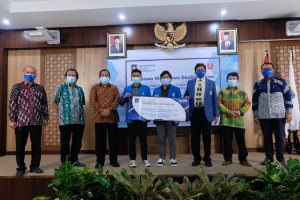

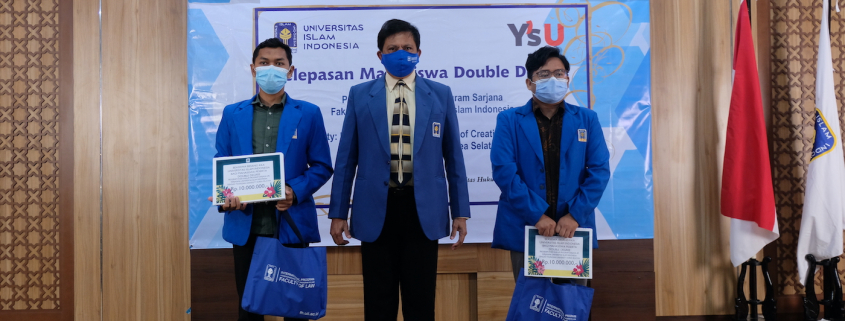
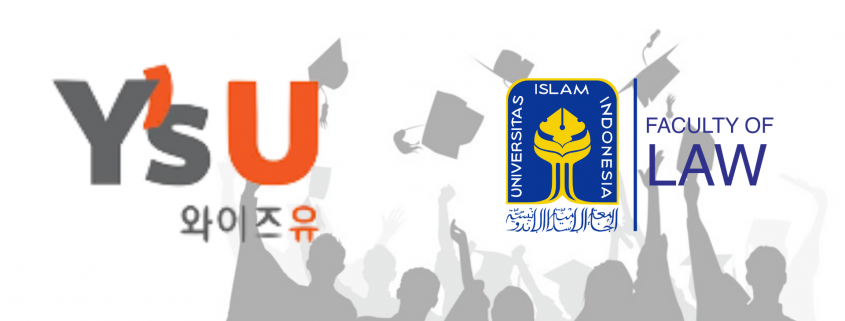
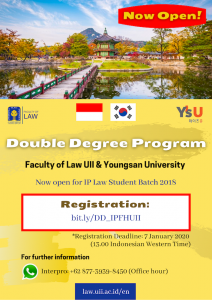
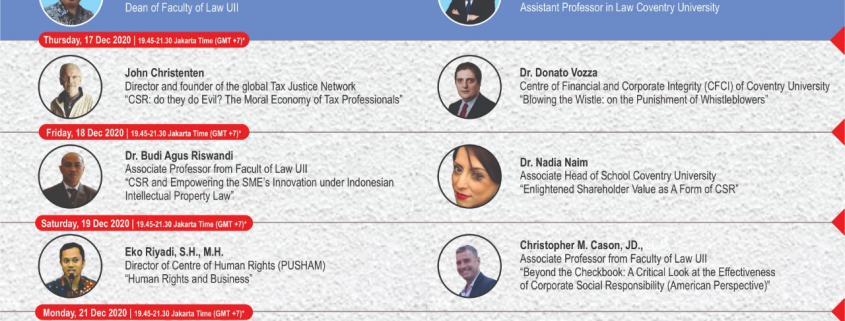
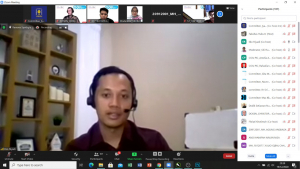 The fourth day is held on Saturday (19/12/2020). On the fourth day, there were two speakers, namely the Director of the Center for Human Rights Studies at UII, Eko Riyadi, S.H., M.H., and Christopher M. Cason, JD., LL.M, a permanent lecturer at FH UII. Eko Riyadi delivered material on the relationship between human rights and business activities. Eko Riyadi pointed out how the conduct of business activities often results in human rights violations. Meanwhile, Christopher Cason delivered material on the effectiveness of implementing social responsibility by companies from the perspective of the United States.
The fourth day is held on Saturday (19/12/2020). On the fourth day, there were two speakers, namely the Director of the Center for Human Rights Studies at UII, Eko Riyadi, S.H., M.H., and Christopher M. Cason, JD., LL.M, a permanent lecturer at FH UII. Eko Riyadi delivered material on the relationship between human rights and business activities. Eko Riyadi pointed out how the conduct of business activities often results in human rights violations. Meanwhile, Christopher Cason delivered material on the effectiveness of implementing social responsibility by companies from the perspective of the United States.